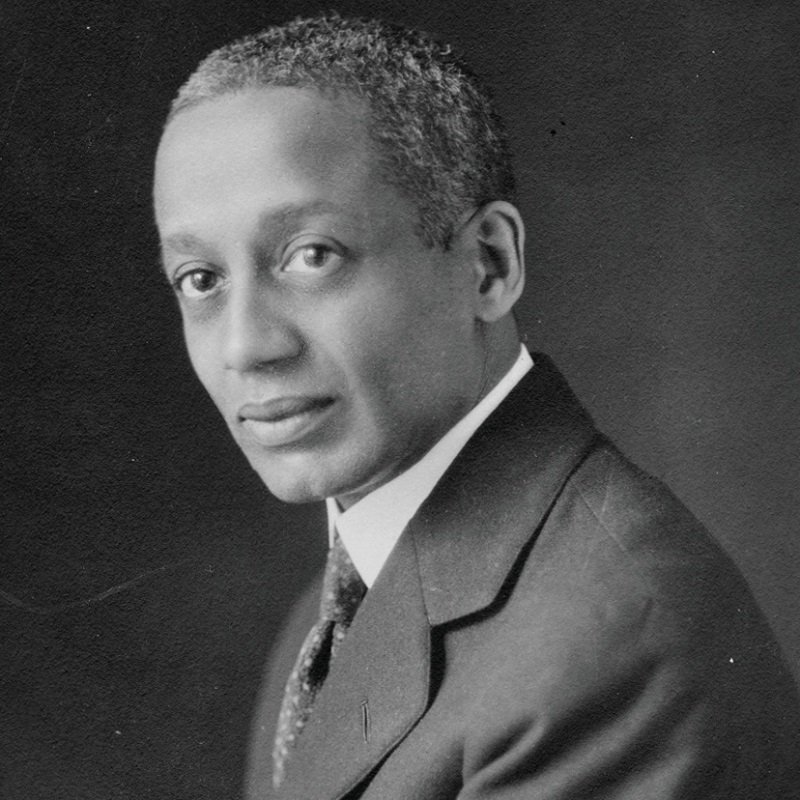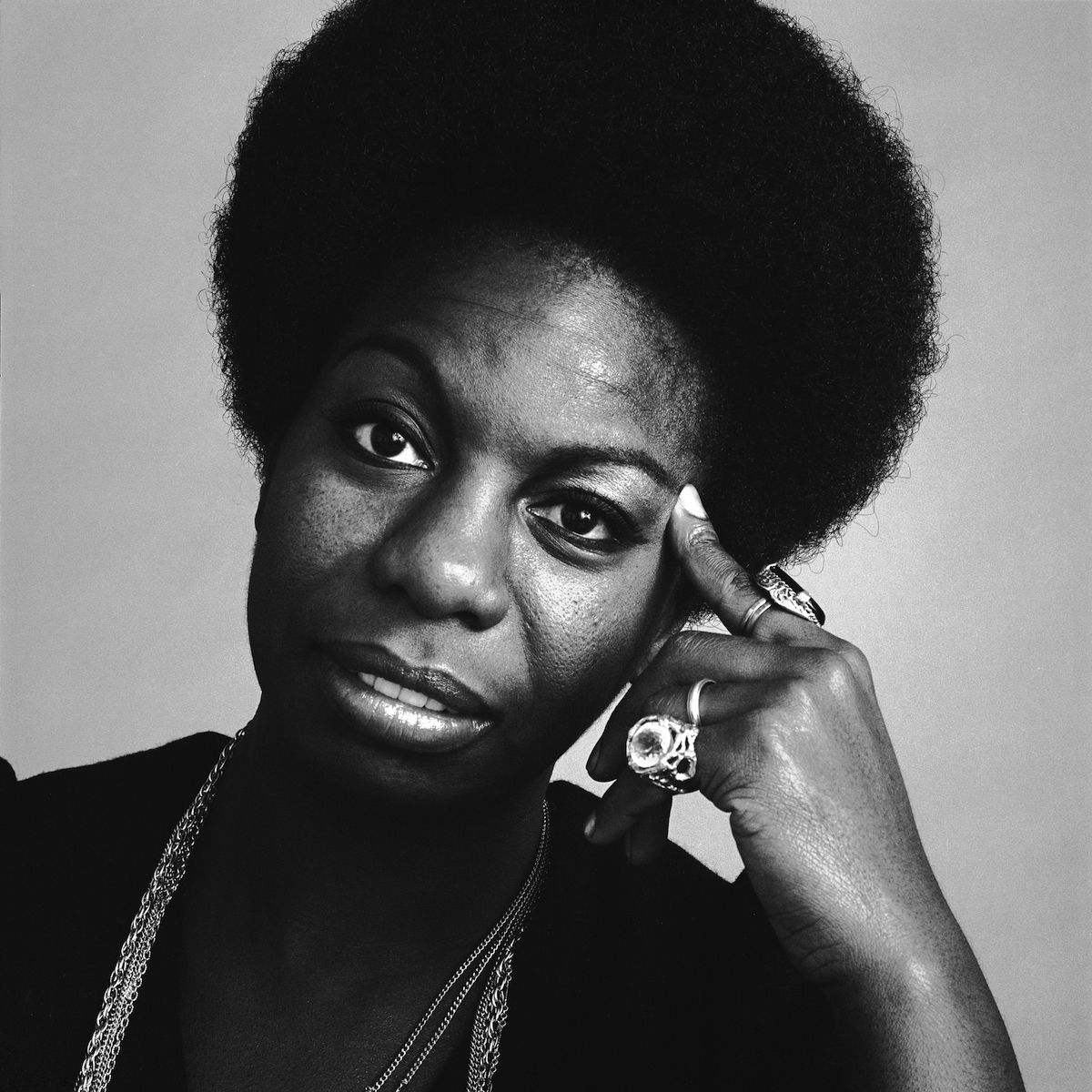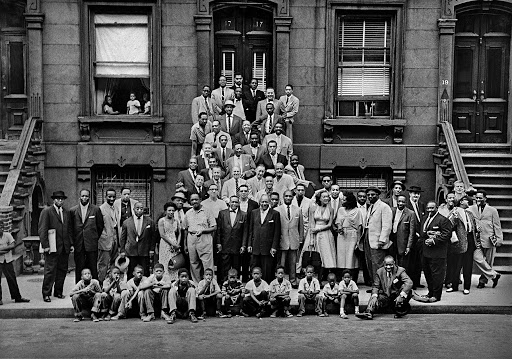What is Black Excellence?
The ability of African Americans to create something unique and enduring without White America’s gaze and influence is what many of them fear most.
“Either America will destroy ignorance or ignorance will destroy the United States.”
― W.E.B. DuBois
W.E.B. DuBois (1868-1963) is one of my favorite Black intellectuals most likely because I like sociology. I enjoyed studying his book, The Philadelphia Negro, while in graduate school. It gave me a different view of Philadelphia that is not taught in public schools. He also crystallized the experience of African Americans in the U.S. by coining the phrase Double Consciousness in his book, The Souls of Black Folk published in 1903. He explains it below:
“It is a peculiar sensation, this double-consciousness, this sense of always looking at one’s self through the eyes of others, of measuring one’s soul by the tape of a world that looks on in amused contempt and pity,… American, a Negro; two souls, two thoughts, two unreconciled strivings; two warring ideals in one dark body, whose dogged strength alone keeps it from being torn asunder.”
DuBois’ point is that Black people live with the mindset of perpetually being denied. Do too well and White people sneer. Do too little and White people pity you. Sound familiar? This is happening today as some White people attempt to derail the latest protests with false equivalence narratives. DuBois talked about this over 100 years ago even though U.S. History is littered with Black overachievement that has been routinely ignored. This double consciousness is still something that Black people struggle with today.
What Black Excellence is Not
Black excellence is not simply a proscribed laudatory performative phrase that Black people use to feel good about themselves. Every ethnic group does that. Because of the many Black idioms and slang that seep into mainstream American culture, it is easy for others to assume this. But it isn’t simply Black overachievement or Black genius either.
I will attempt to illustrate a Black Excellence definition through a series of four quotes and commentary about influential Black people who have influenced my thinking on this topic.
1. The Beautiful Struggle Life
“Every great dream begins with a dreamer. Always remember, you have within you the strength, the patience, and the passion to reach for the stars to change the world.
– Harriet Tubman
 Harriet Tubman (1822-1913) was an abolitionist and activist who also served in the Civil War.
Harriet Tubman (1822-1913) was an abolitionist and activist who also served in the Civil War.
The trauma she endured while enslaved ignited a fire that led her to escape to the North and assist with the Underground Railroad. Harriet was very creative on her missions to avoid being caught by using disguises and various modes of transportation. There is evidence that she could not read or write which meant she had be a good judge of character to know who she could trust. Harriet trusted her instincts and faith in God to guide and comfort her during difficult times and when traveling through unfamiliar territory.
Dreamers connect the sequence of events to find purpose. This means understanding the place of spirituality and hardship in one’s life. To dare dream when this isn’t a reality is extremely difficult.
In reality, Harriet’s painful experience inspired her to make change. This breeds Black excellence.
Modern day Harriets: Mothers of Black men and women murdered by police officers, Malcolm X, Betty Shabazz, Coretta Scott King, etc.
2. The Resilient Life
“Success is to be measured not so much by the position that one has reached in life as by the obstacles which he has overcome”.
–Booker T. Washington
 Booker T. Washington (1856-1915) was born into slavery and rose to found the Tuskegee Normal and Industrial Institute (Tuskegee University) in 1881. He labored in the mining industry earning money to attend school. He studied at Hampton Institute (Hampton University) and Wayland Seminary. Booker advised U.S. presidents and was the one who hired scientist George Washington Carver.
Booker T. Washington (1856-1915) was born into slavery and rose to found the Tuskegee Normal and Industrial Institute (Tuskegee University) in 1881. He labored in the mining industry earning money to attend school. He studied at Hampton Institute (Hampton University) and Wayland Seminary. Booker advised U.S. presidents and was the one who hired scientist George Washington Carver.
Booker believed the way forward for Black people was self-improvement through trades and labor as long as White people did not impede our progress. (This brought him in sharp disagreement with W.E.B. DuBois.)
Booker understood the connection between hard work, overcoming obstacles and character. This breeds Black excellence.
Modern day Bookers: John Hope Bryant, Dr. Claude Anderson, Vann Jones, President Barack Obama and Michelle Obama, Oprah Winfrey, etc.
3. The Cultural Life
Art must discover and reveal the beauty which prejudice and caricature have overlaid.
–Alain Locke
 Alain LeRoy Locke (1885–1954) was a philosopher and taught at Howard University. He got his doctorate from Harvard University and was the first African American to win a prestigious Rhodes Scholarship.
Alain LeRoy Locke (1885–1954) was a philosopher and taught at Howard University. He got his doctorate from Harvard University and was the first African American to win a prestigious Rhodes Scholarship.
Alain published The New Negro in 1925 focusing on African and African American cultural identity. He pointed out that that forced desegregation brought Black people from different classes, identities (Northern Blacks and Southern Blacks) and occupations (labor and professional) together into one community. This led to unique artistic expressions and what he would call The New Negro. Alain wrote about the The Harlem Renaissance which brought together Caribbean Blacks, African Americans and Africans. Other similar movements are present in cities where there is a significant Black population like Chicago, Philadelphia, Detroit, Pittsburgh and Cleveland.
Alain saw the connection between modernity and freedom for Black people expressed through their art while living in community. This breeds Black excellence.
Modern day Alains: Melissa Harris-Perry, Marc Lamont Hill, E. Franklin Frazier, Carter G. Woodson, Mary Frances Berry, Micheal Eric Dyson, Cornel West, Johnnetta B. Cole, Henry Louis Gates, W.E.B. DuBois, etc.
4. The Protest Life
“You can’t help it. An artist’s duty, as far as I’m concerned, is to reflect the times.”
― Nina Simone
 Nina Simone (1933-2003) is considered an icon of American music and an international jazz vocalist. She started playing piano by ear at the age of three and was raised in the church. After graduating from high school, her community raised money for her to study at Juilliard in New York City. (She was denied admission to the Curtis Institute of Music in Philadelphia because she was Black). Nina understood two important elements in African American life: music and storytelling. In the 1960s, she made songs dealing with racial inequality and regularly performed at Black Protest Movement events. She recorded more than 40 albums with a musical style that mixes gospel, pop and classical music.
Nina Simone (1933-2003) is considered an icon of American music and an international jazz vocalist. She started playing piano by ear at the age of three and was raised in the church. After graduating from high school, her community raised money for her to study at Juilliard in New York City. (She was denied admission to the Curtis Institute of Music in Philadelphia because she was Black). Nina understood two important elements in African American life: music and storytelling. In the 1960s, she made songs dealing with racial inequality and regularly performed at Black Protest Movement events. She recorded more than 40 albums with a musical style that mixes gospel, pop and classical music.
Nina used her artistic platform to speak about racial injustices affecting the Black community even though it cost her record sales. This breeds Black excellence.
Modern day Ninas: Aretha Franklin, Harry Belafonte, the founders of BLM, Boots Riley, Public Enemy, Muhammad Ali, Kaep, Lauryn Hill, etc.
Modern Day Ignorance
Dubois’ quote at the beginning of this commentary is very relevant in the past and the present. America has another opportunity to fully and officially respond to racial injustice but in the past, it has not. It has buried the lynchings of Black people, white mob inspired race riots, racist federal, state and municipal laws and policies, the truth of the Confederacy (until now) and the nightmare of American Slavery simply to make White people feel…exceptional. As a result, all of America and its institutions are implicated.
Black excellence is a partial response to this racial injustice but it also carries the belief that America can live up to its Constitutional ideals. African Americans know the stigma of needing to be twice as good…at everything. Although this has fueled interesting trends and innovations in certain areas (mostly the cultural industries), the downside is the double consciousness Dubois spoke about. It is the feeling that what we ask for will always be questioned and we are never good enough. Understandably, this experience has also contributed to the importance of religion, Pan African thought and separatist movements in the Black community.
White America’s response to Black Excellence has often been to either be entertained (Blackface, tokenism, modern music industry, etc.), use it to bolster their wokeness with their targeted audiences (BLM hashtags, Aunt Jemima, etc.), give Black pioneers posthumous awards (Graphic Design industry, Tuskegee Airmen, etc.), or treat us like a threat (J. Edgar Hoover, President Trump, All Lives Matters, etc.).
In conclusion, Black Excellence is not only about mastering an individual craft which is what is typically taught in the western world. It is knowing when to bring your personal and communal experiences to bear on your craft as an example for your community. It is recognizing that your community needs to see you.
Therefore, I don’t think I am an exceptional graphic designer because of what my design peers say. I believe I am exceptional because I have spent time expanding my knowledge into other disciplines to help my community while doors closed in my face. Instead of viewing these closed doors as obstacles, I humbled myself and innovated. This is a common experience among Black professionals. This is one of the reasons why I am comfortable wearing additional titles such as educator, brand consultant and entrepreneur. Just so you know, multiple titles are common among Black designers whom the white graphic design industry claims do not exist.
(A Great Day in Harlem is a black-and-white photograph of 57 jazz musicians taken in Harlem, New York City in 1958. This photo personifies Black Excellence.)
